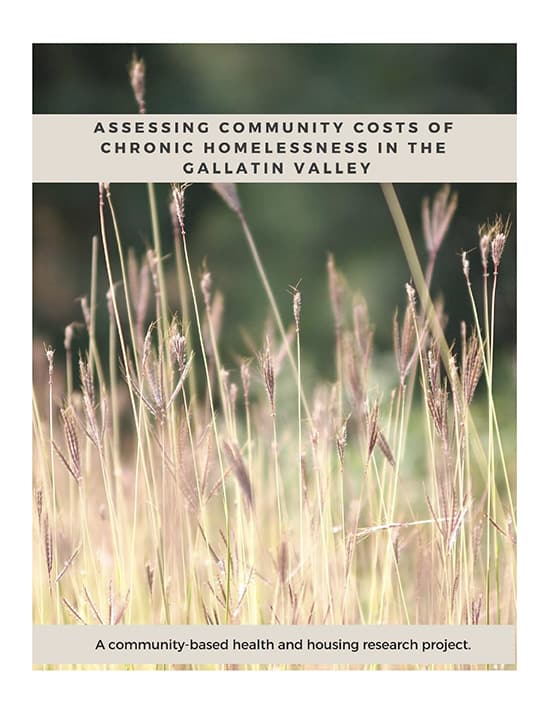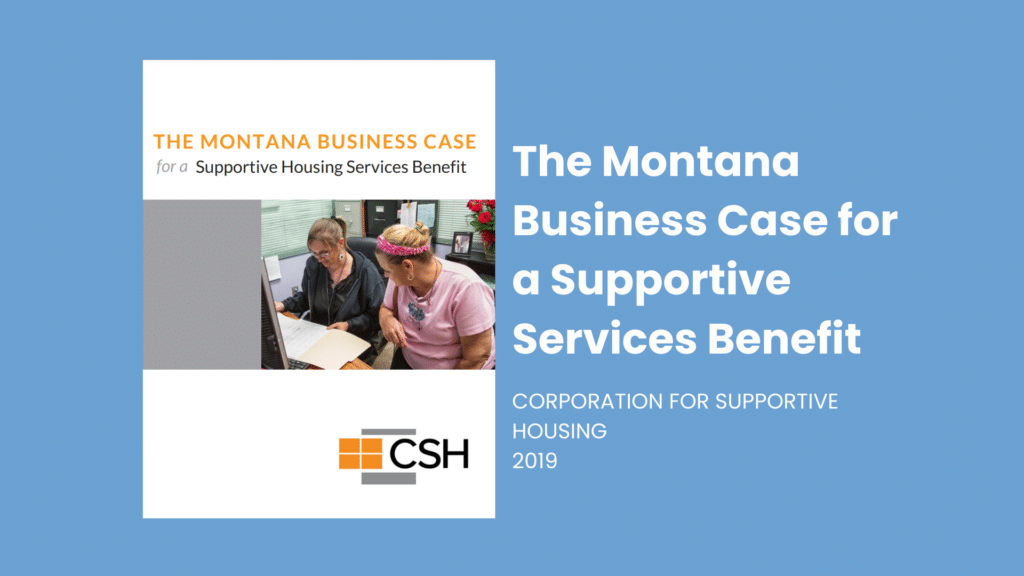Funded through a grant from the Montana Healthcare Foundation, Human Resource Development Council of District IX embarked on a research project to understand the current community costs and the most cost effective approach to addressing chronic homelessness. Specifically, the project aimed to identify any correlation between the impacts of housing on health outcomes. The study was expanded to incorporate costs from law enforcement agencies, social service providers and other community resources that are expended each year which might be impacted by housing. Key community partners convened around this purpose and developed a research protocol that would allow researchers to assess costs from each public sector. Eight participants provided both a qualitative interview, and releases of information that allowed researchers to compile and analyze the types and costs of services provided in a two year period. The overall cost of all services for these eight individuals totaled over $450,000.
Research results showed our community spends $28,305 annually per homeless “super-utilizer” with many of these costs un-reimbursed or paid with taxpayer dollars. Additionally, analysis of the health care issues, or law enforcement charges show that many of these costs could be reduced with stable housing. A comparison of the costs before and after housing further supported this concept, showing a 73% reduction in health care costs alone. The Housing First model which connects homeless persons with stable housing and supportive services was estimated to cost $11,860 per household annually. Housing First is a less costly, more effective model that will achieve better health, housing and community outcomes.
Download


